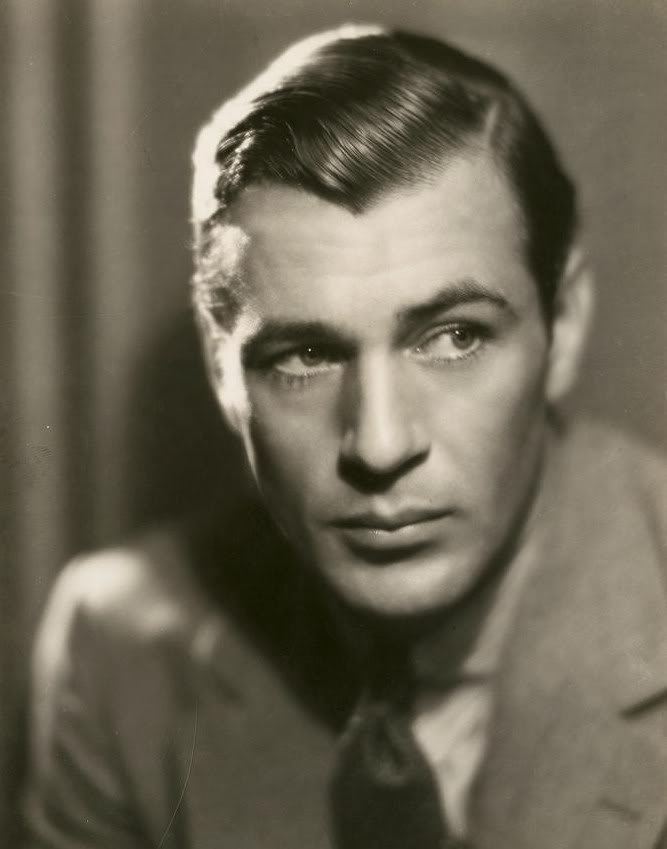Gary Cooper born on May 7, 1901, in Helena, Montana, is a name that resonates with the golden age of Hollywood cinema. Known for his exceptional acting skills and distinct screen presence, Cooper became a symbol of American masculinity in film. His career spanned over three decades, during which he starred in numerous classics that left an indelible mark on the industry.
This article aims to explore the life, career, and impact of Gary Cooper on Hollywood and popular culture. We will delve into his early life, his rise to fame, notable films, awards, and his legacy that continues to inspire generations. Through a detailed analysis, we hope to provide a comprehensive understanding of why Gary Cooper remains an influential figure in cinema history.
Furthermore, as we navigate through Cooper's illustrious journey, we will present factual data and insights that highlight his contributions to film and society. Whether you are a film enthusiast, a student of history, or simply curious about Hollywood's past, this article will serve as a valuable resource. Let’s embark on this exploration of Gary Cooper's life and career.
Table of Contents
- Early Life of Gary Cooper
- Rise to Fame
- Notable Films
- Awards and Recognition
- Personal Life
- Impact and Legacy
- Conclusion
Early Life of Gary Cooper
Gary Cooper was born Frank James Cooper to a rancher father and a mother who was a homemaker. Growing up in Montana, he was exposed to the rugged American frontier, which would later influence his choice of roles. Cooper attended several schools, including the Helena High School and the Grinnell College in Iowa, where he studied art and engineering.
His early exposure to the outdoors and the values of the American West shaped his character, which would later be reflected in the roles he chose. After graduating, Cooper moved to Los Angeles to pursue a career in acting. His tall stature and striking features quickly caught the attention of film executives.
Data Personal and Biodata
| Full Name | Frank James Cooper |
|---|---|
| Date of Birth | May 7, 1901 |
| Place of Birth | Helena, Montana, USA |
| Date of Death | May 13, 1961 |
| Occupation | Actor |
Rise to Fame
Cooper's rise to fame began in the late 1920s when he appeared in silent films. His breakthrough role came in the 1929 film "The Winning of Barbara Worth." The transition from silent films to "talkies" was seamless for Cooper, as his distinctive voice and acting style resonated with audiences.
Throughout the 1930s, Cooper starred in a series of successful films, including "Mr. Deeds Goes to Town" (1936), which showcased his ability to portray the everyman. His performance in "High Noon" (1952) solidified his status as a Hollywood legend, earning him an Academy Award for Best Actor.
Notable Films
Gary Cooper's filmography is a testament to his versatility as an actor. Here are some of his most notable films:
- Wings (1927) - A silent film that won the first Academy Award for Best Picture.
- Mr. Deeds Goes to Town (1936) - A romantic comedy that earned him critical acclaim.
- Sergeant York (1941) - A biographical war film that showcased his acting prowess.
- High Noon (1952) - A classic Western film that earned him an Academy Award.
- From Here to Eternity (1953) - A film that won several Oscars and solidified his status as a leading man.
Awards and Recognition
Throughout his illustrious career, Gary Cooper received numerous accolades, including:
- 2 Academy Awards for Best Actor
- Golden Globe Awards
- BAFTA Awards
- Hollywood Walk of Fame Star
Personal Life
Gary Cooper's personal life was as intriguing as his film roles. He married actress Veronica Balfe in 1933, and they had one child together. Cooper was known for his private nature and preferred to keep his personal life away from the public eye. Despite his fame, he remained grounded and maintained strong ties with his Montana roots.
Impact and Legacy
Gary Cooper's impact on Hollywood is undeniable. He set the standard for leading men in film with his rugged charm and authenticity. His portrayal of complex characters in a variety of genres paved the way for future actors to explore similar roles. Even today, Cooper's films are celebrated for their storytelling and emotional depth.
His legacy continues through the films he left behind, which inspire new generations of filmmakers and actors. Cooper's influence can be seen in modern cinema, where themes of heroism and moral integrity remain prevalent.
Conclusion
In conclusion, Gary Cooper born on May 7, 1901, was not just an actor; he was an icon who embodied the spirit of American cinema. His journey from a small-town boy to a Hollywood legend is a testament to his talent, hard work, and dedication. As we reflect on his life and career, it is evident that Cooper's contributions to film and culture are immeasurable.
We invite you to share your thoughts on Gary Cooper’s legacy in the comments below and explore more articles on our site that delve into the lives of other iconic figures in Hollywood history.
Thank you for reading, and we hope to see you again soon!
Is Jeffrey Toobin Still Married? A Deep Dive Into His Personal Life
Emma Chamberlain Net Worth: A Comprehensive Look At Her Rise To Fame And Fortune
Cody Johnson Albums: A Deep Dive Into His Musical Journey
:max_bytes(150000):strip_icc()/gary-cooper-5a8e08abc673350037844f2e.jpg)

